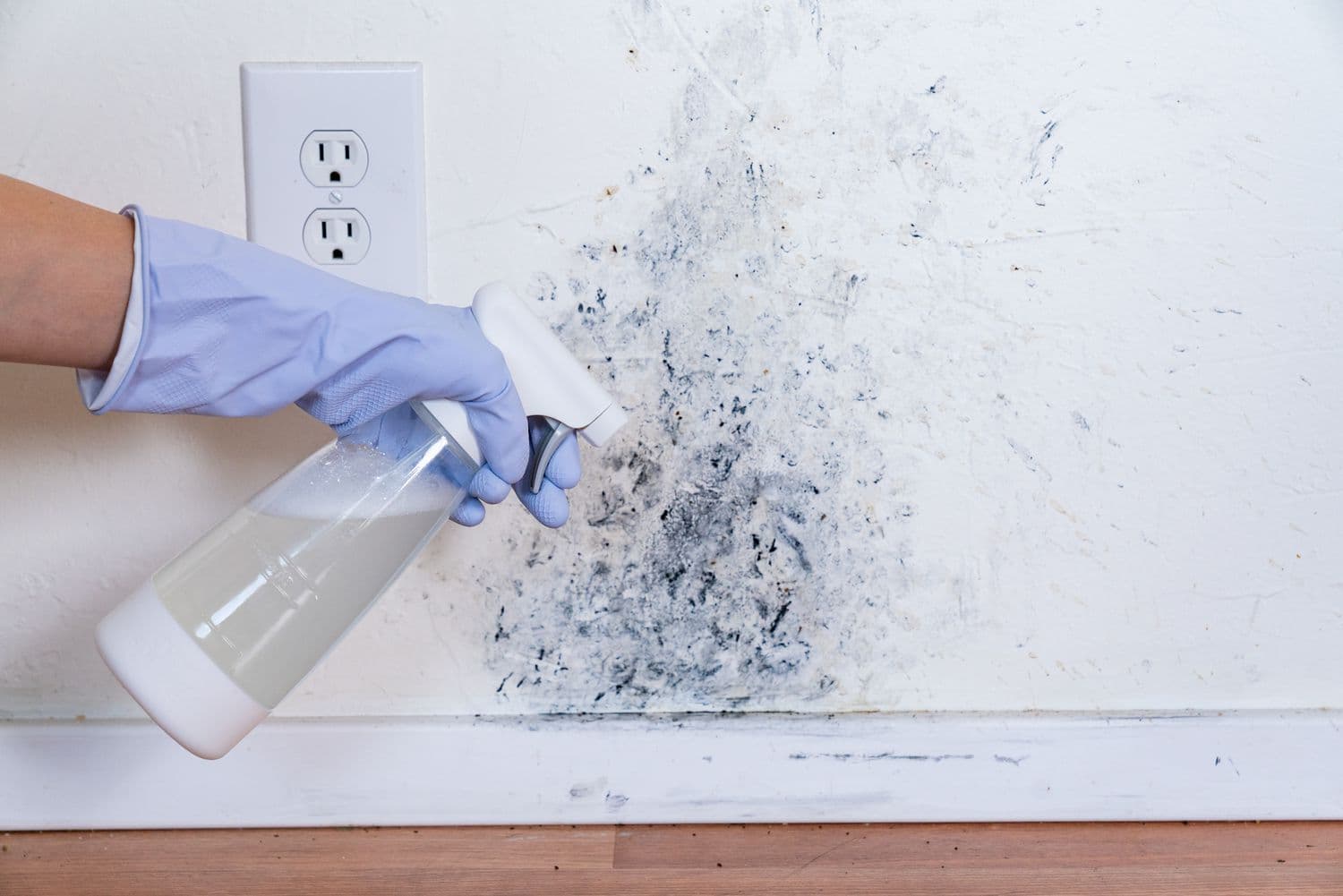
Mold can be a health hazard and nuisance in any home. Exposure to mold spores can cause allergic reactions, asthma attacks, and other respiratory problems. Mold also stains and damages surfaces it grows on. Fortunately, killing and removing mold is a doable DIY project. Follow this step-by-step guide to learn how to clean mold in your home.
What You Need to Clean Mold
Before tackling a mold problem, assemble the right cleaning supplies:
Protective Gear
Wear gloves, goggles, and an N95 mask to protect yourself from mold spores and harsh chemicals. Long sleeves, pants, and closed-toe shoes add extra protection.
Mold Killing Solutions
Use conventional household cleaners or dedicated mold removal products. Bleach, vinegar, baking soda, hydrogen peroxide, detergent, and ammonia all kill mold.
Scrubbing Tools
Use stiff brushes, sponges, microfiber cloths, or abrasive pads to scrub away mold growth. Avoid spreading spores with excessively abrasive scrubbers.
Water and Dehumidifier
Dry surfaces speed up mold removal. Use towels, rags, a wet/dry vacuum, or a dehumidifier to eliminate excess moisture.
Plastic Sheeting, Bags, and Tape
Isolate the work area and properly dispose of moldy materials with plastic sheeting, contractor bags, and tape.
Assess the Mold Situation
Before cleaning, investigate the mold issue to plan your approach:
- Determine the affected area – Look for mold on surfaces throughout the home. It often grows in damp, warm, or humid places.
- Identify the mold type – While any visible growth should be removed, toxic black mold requires special cleanup procedures.
- Find the moisture source – Mold requires moisture to grow. Find and repair all leaks or sources of excess humidity fueling growth.
- Consider professional help – For large areas, toxic black mold, or complicated moisture issues, call in a mold remediation specialist.
Prepare the Space for Mold Removal
Once you know the scope of the issue, prep the space for safe, effective mold removal:
Isolate the Area
Block off doors, vents, fans, and any other pathways for spreading spores. Plastic sheeting taped over openings works well.
Protect Yourself and Others
Make sure all people and pets leave the area before working. Open windows and use fans or dehumidifiers to ventilate.
Remove Furnishings and Belongings
Take out any items that have mold growth. Clean smaller items separately.
Lay Down Plastic Sheeting
Cover the floor and any nearby surfaces with plastic sheeting to catch spores, drips, and debris.
Kill and Remove Mold Growth
With protective measures in place, it’s time to tackle the mold. Take these steps to thoroughly kill and remove all traces:
Choose Your Cleaning Solution
Select an appropriate mold-killing solution for the surface type. Bleach, vinegar, hydrogen peroxide, and detergents all effectively kill mold.
Apply the Cleaner and Let It Sit
Spray or scrub the solution generously onto all moldy areas. Let it soak in for 10-15 minutes.
Scrub Away Mold Residue
Vigorously scrub with a stiff brush or abrasive pad until all visible mold, staining, and residue are gone.
Rinse the Area Thoroughly
Wipe the area with clean water or a damp cloth. Dry quickly with towels.
Allow the Area to Dry Completely
Eliminate any remaining moisture using fans, dehumidifiers, or an air mover. Mold can’t regrow on fully dry surfaces.
Clean and Dry Affected Items
For moldy clothes, furniture, or other items removed from the area:
- Clean washable items with detergent, vinegar, or other cleaners, then let them fully dry.
- Use HEPA vacuum attachments to remove mold from furniture, carpets, and other items.
- Wipe down solid surfaces with mold-killing solutions. Let dry fully before returning items.
- Discard porous or rotten materials that can’t be thoroughly cleaned and dried.
Prevent Mold from Returning
Once the mold is removed, take proactive steps to keep it from coming back:
- Fix all leaks and moisture problems, like roof damage, plumbing leaks, and HVAC condensation.
- Maintain low indoor humidity, ideally between 30-50%. Use dehumidifiers and exhaust fans.
- Improve airflow and ventilation. Let fresh air circulate throughout the home.
- Clean bathrooms, basements, and other damp areas frequently.
- Act quickly when you see new mold growth. Clean it before it spreads.
Conclusion
Mold can gradually damage belongings, ruin surfaces, and cause health issues if left unchecked. However, by using protective gear, assembling the right supplies, preparing your workspace, and meticulously killing, scrubbing away, and drying mold growth, you can successfully remove mold from your home yourself. Stopping excess moisture and staying vigilant prevents recurring mold issues. With this complete guide, you can tackle mold problems head-on and reclaim a clean, healthy indoor environment.
FAQs About Cleaning Mold
What is the fastest way to remove mold?
Spraying concentrated bleach or hydrogen peroxide onto mold growth kills it quickly on non-porous surfaces like tile, metal, glass, and sealed wood. Let it soak for 10-15 minutes before scrubbing clean.
How do you clean mold you can’t see?
Kill hidden mold in walls or under materials by injecting mold-killing solutions into the area with a spray bottle nozzle extension. Mold also dies when wall cavities dry completely after a leak repair.
Can I paint or caulk over mold?
Never paint or caulk over moldy surfaces. The growth will continue spreading under the coating. Always fully clean and dry surfaces before repairing visible damage or holes.
How do professionals remove mold?
Pros use strong chemicals and tools homeowners may not have, like sodium hypochlorite, HEPA vacuums, Tyvek suits, and truck-mounted drying equipment. They know how to thoroughly fix moisture issues.
What natural products kill mold?
Non-toxic mold-killing solutions include white vinegar, tea tree oil, grapefruit seed extract, clove oil, and various enzymatic cleaners. However, they may not penetrate porous materials as well as chlorine bleach.






